Sunshine gleams through the art-stained window panels and the aroma of Mexican spices and freshly-baked pastries welcome visitors entering Mi Tierra. The family-owned restaurant, located in San Antonio, Texas, first opened in 1941 by Pedro and Cruz Cortez with only three tables. Now, owned by their descendants, Mi Tierra seats over 500 diners per day to homely Mexican meals and a warm Texas welcome.
But before customers indulge in platters of beef tacos, tamales, enchiladas or other Tex-Mex dishes, they might turn their fascination to an altar that stands in the hallway. Some guests might even stop to silently pray before being seated by a hostess.
Our Lady of Guadalupe, prayer candles, and artificial marigolds decorate the altar, and colorful papel picado banners and fairy lights cover the ceiling overhead. Here, religious offerings and ornaments are added to honor the lives of the deceased, helping to guide their spirits into the afterlife.
One such hostess is Guadalupe Aranda, who wears a vibrant red traditional folklorico dress and greets a group of customers with a kind smile. As Aranda, who is 75, leads them to their table, they pass a group of mariachi musicians playing old Mexican melodies. The customers are seated by a large mural that features hundreds of portraits of iconic Latino figures such as the late Tejano singer Selena Quintanilla, John Quiñones, Archbishop Patrick Flores and more.
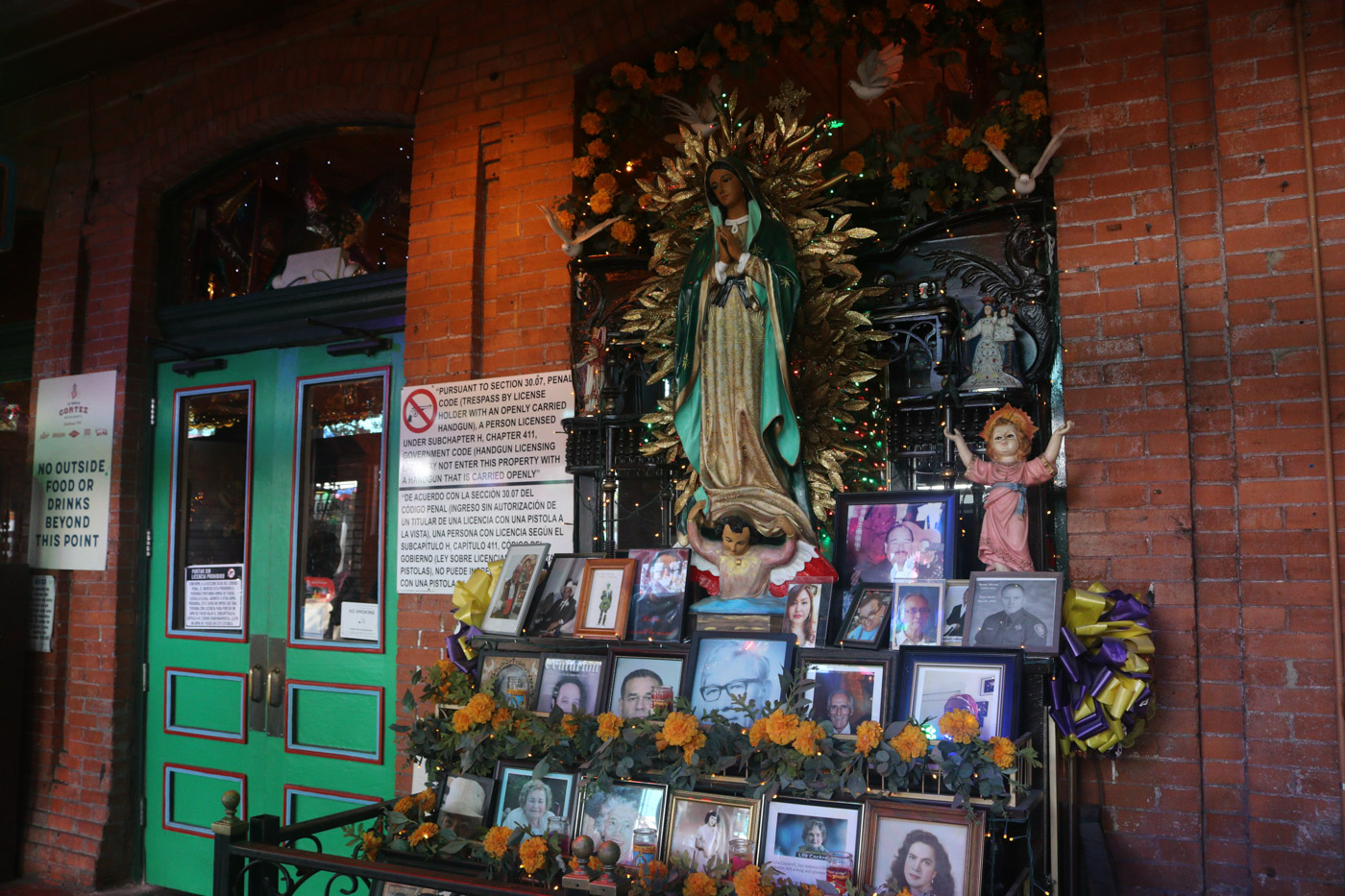
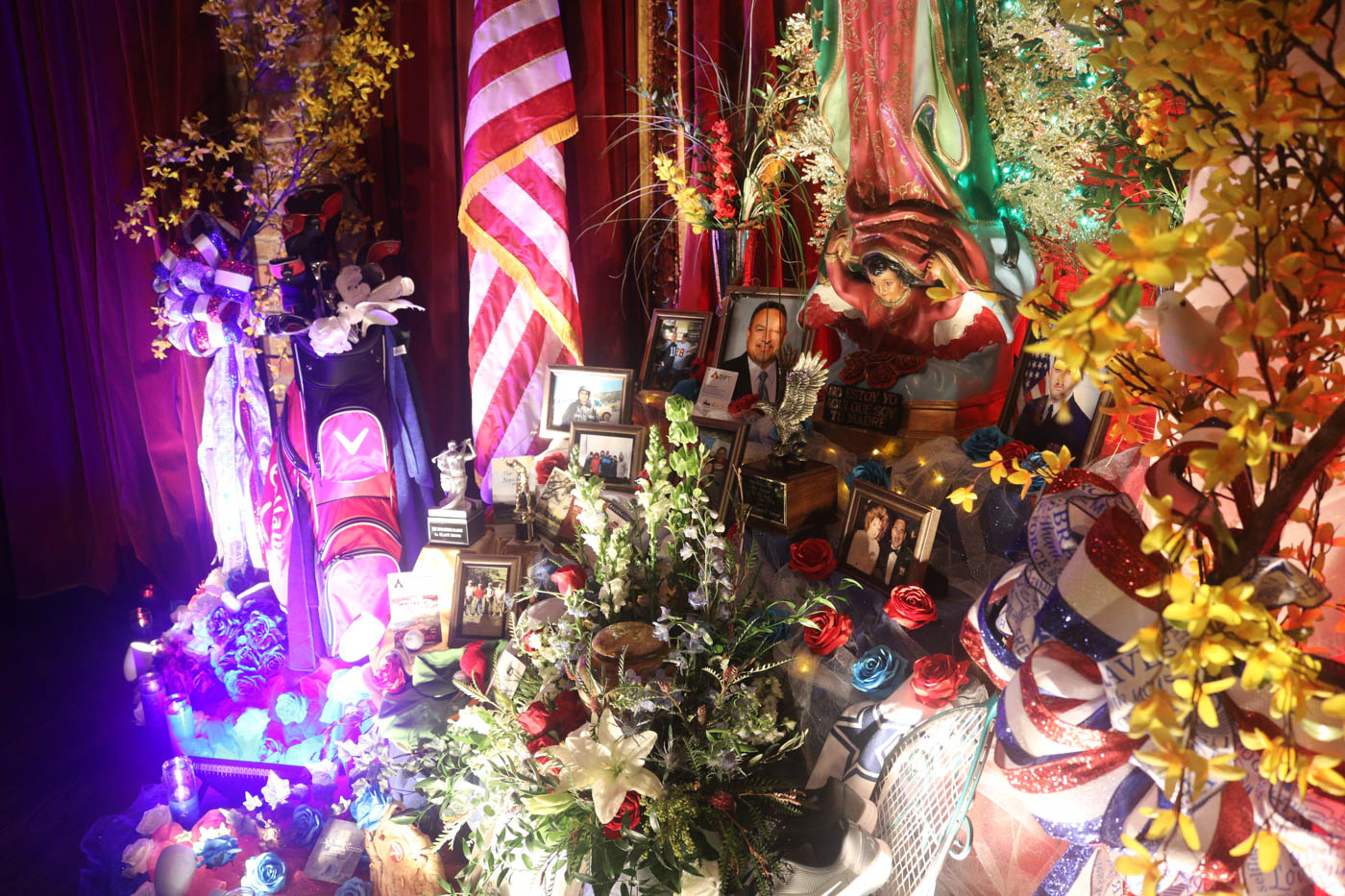
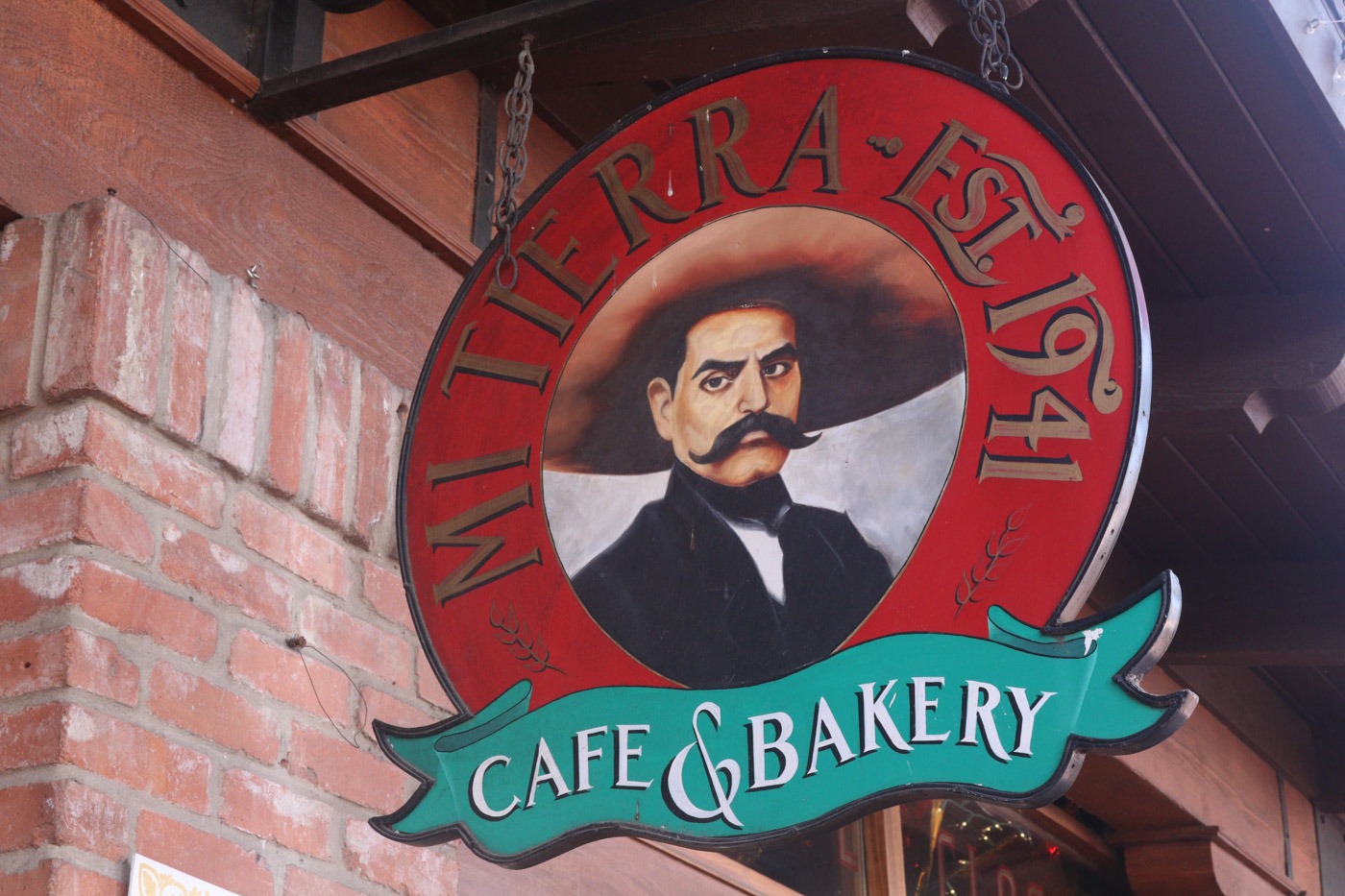
Customers and staff are drawn to Mi Tierra for more than its food and lively atmosphere, and to Aranda, working at Mi Tierra means more than generating a steady paycheck. It also signifies attaining a greater level of religious fulfillment. The Cortez family’s commitment to celebrating life and integrating spiritual elements turns the family-owned restaurant into a unique religious haven. Here, people are encouraged to pray together, host religious community events, and converse about God.
Before joining Mi Tierra, Aranda was a devoted Catholic nun at church and charity organizations for more than 55 years. However, after encountering some health and financial obstacles during the pandemic, she had to change the course of her career.
When she landed a job at her childhood-favorite restaurant, Mi Tierra, she unexpectedly found and welcomed a new form of spiritual practice and healing.
“He is always at work, and He calls us to join him, and I joined Him here,” she says. “I feel like I am doing ministry here. And while there are different traditions here, we don’t celebrate it during feast days only; we do it all year long.”
When Aranda was first hired at Mi Tierra in 2020, she began as a bus girl earning $15 per hour. She wore a pair of black pants and a plain white T-shirt, which was comfortable enough to move around in as she carried heavy buckets of water to clean tables. She was good at her job, and sometimes even faster than some of the younger employees.
“I could have found a better job—I do have a master’s in social work—but I prayed to God and said, ‘I’ve got to make ends meet,’” she says. “I received a sign from Him and this is what I was offered. He prompted me here—to Mi Tierra.”
Aranda grew up in New Mexico learning about religion from her grandparents, and at the age of 18 she aspired to become a full-time nun devoted to the teachings and services of the Catholic church. After pursuing an undergraduate degree in theology, Aranda joined the convent where she spent a couple of years learning about monastic life practices, visiting other convents, speaking to religious members, and attending classes and retreats.
However, during this period, Aranda also started to question the church’s ordinance. She began to doubt its interpretation of God’s teachings and strict rules invoked in His name. “The church itself is not perfect,” Aranda says. “The atrocities that the church did in the name of God were horrible mistakes.”
According to Aranda, the church was “too institutional,” and some of the implemented rules “had nothing to do with God.” One of the rules included obedience. If a matter appeared to be illogical or unreasonable, she was expected to obey regardless of how she felt.
During Aranda’s formation period, she received news that her grandfather had fallen ill. He requested to see her, and her mother called the church multiple times to grant her daughter time to visit home. But the church refused each time, and soon enough, Aranda’s grandfather passed away. Only then she was allowed to leave. So when she hopped on the first bus back home and her grandfather laid in his casket, she could only exchange silent prayers and sympathies.
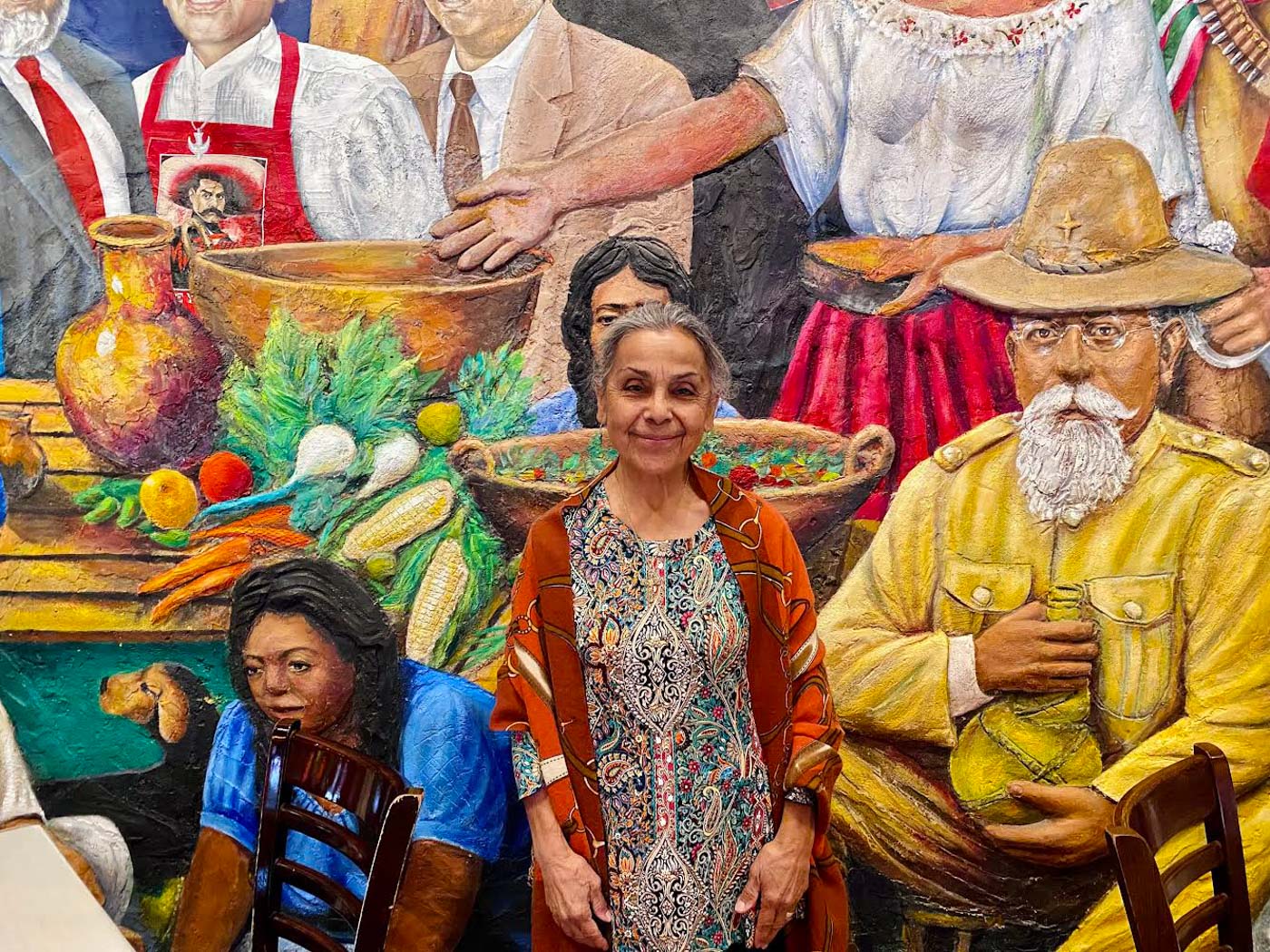
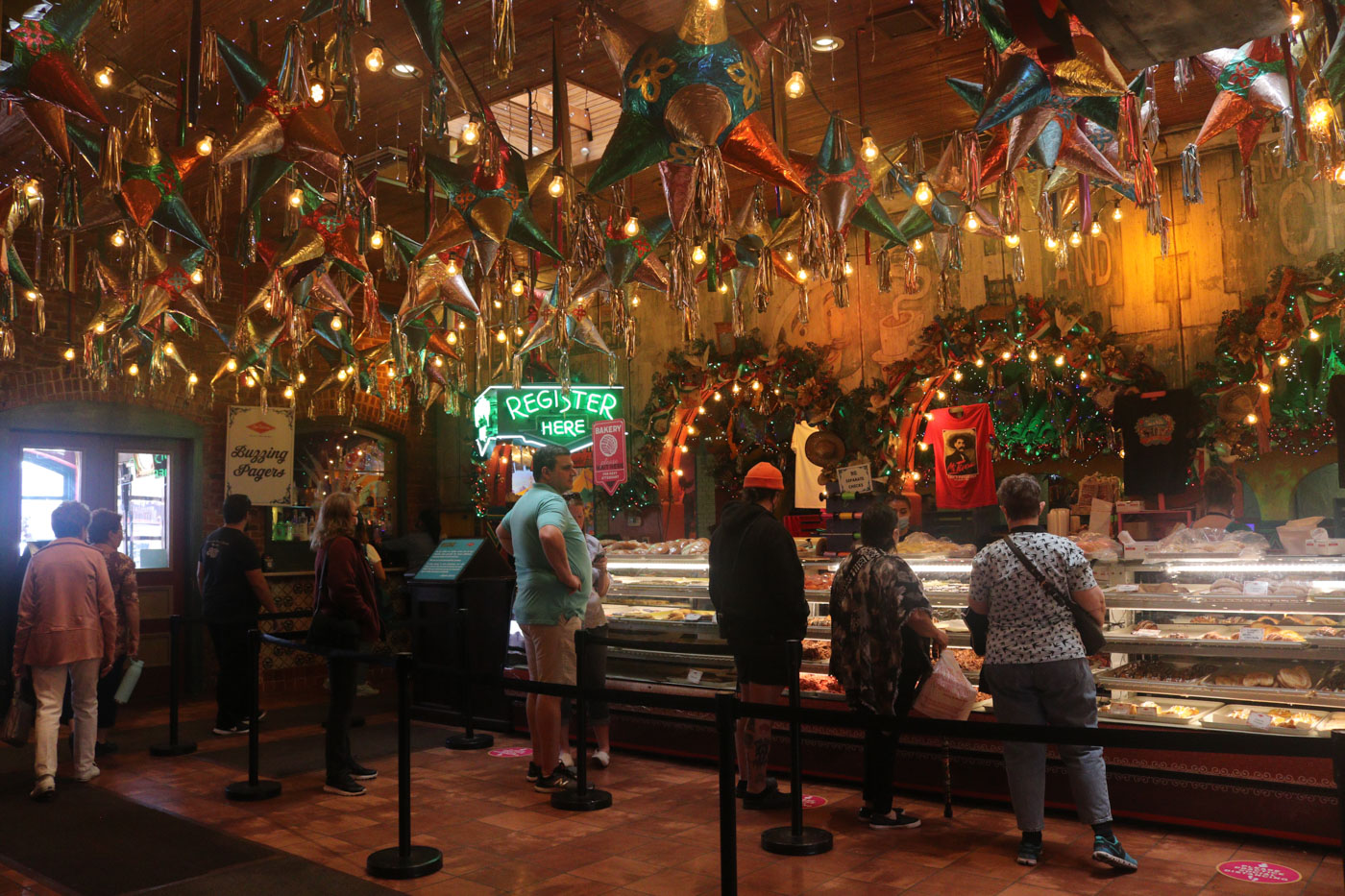
Despite the rules, Aranda decided to stay with the church to remain closer to God. However, as time passed by and the cracks of the church’s ordinance began to appear, Aranda slowly realized “the small rules had nothing to do with God.”
“I was young; I couldn’t rebel. It continued with other little rules we were following that made no sense. It doesn’t make you love God more. In fact, it makes you love the religious life less,” she says. “And that’s why I left.”
After leaving the church nearly 37 years later at the age of 55, Aranda’s dedication and devotion to God remained. So she sought to find other work opportunities that allowed her to serve her community by providing care and religious services to the most vulnerable—especially through charities and schools.
“Even though I left, my desire to be for God was still there. So I kept my full dedication to him and sought to work for his people wherever they would need it,” she says.
Aranda first served as a social worker at Casa de Esperanza de los Niños, a nonprofit that provides shelter for abused and abandoned infants and children in Houston. She then moved to New Mexico to seek new religious and spiritual healing, joining another nonprofit sheltering domestic violence victims.
But after 16 years, Aranda retired as a social worker and continued her quest of searching for a job with the perks of attaining a higher and more fulfilling form of religious spirituality. Her new calling took her to Mi Tierra in San Antonio.
“I loved it from the first time I started [working], because I remember when I visited with my mom and dad (who are in heaven), and I remember when I came here with my sister and brother. I remember the music,” she says. “I was on cloud nine because … God was present everywhere.”
At 75, Aranda never thought she would work at her childhood-favorite restaurant. Like an old movie reel, she plays the vivid hues of memories that dance in every corner of the dining area. She replays scenes of her family sharing meals of pozole and tacos, listening to the same music she woke up to every Saturday morning.
In the corner of each room and hallway stand more altars honoring the lives of the deceased. Aranda often passes by one of the altars to visit and greet her late brother. His photo was placed on the second row, visible enough for people to see his eye-catching cowboy attire. To Aranda, his presence allows her to express an ever-giving emotion of love and hope. Here, she celebrates the richness of Mexican culture blended with religion—something she did not find and missed at church.
“This place is where people feel at home. It’s where people feel like they’re coming to their own families to eat. It’s where you feel [you’re] going deep in faith and the Mexican culture,” she says.
According to Pete Cortez, a third-generation owner of the restaurant, Mi Tierra was built to be a space shared with families, as well as dedicated to preserving Mexican culture and religious experiences.
The restaurant’s mission reads: “We will glorify God by honoring the vision of our founders, valuing family, preserving our culture, and offering a world-class experience. We’re in the business of feeding minds, bodies and spirits.”
“Our business is not just serving food and drinks. We try to take the next level of feeding people their minds and spirits and making those deeper connections. It’s beyond what most restaurants can take on,” Cortez says. “And for Guadalupe, it’s more than just seating people. She’s ministering to people, sometimes one-on-one. People have told me they have connected with her.”
Despite practicing religion and experiencing a new form of spiritual connection in unorthodox spaces, Aranda embraces every opportunity to connect with God.
“Wow, Lord,” Aranda expresses. “You took me to so many places and now I’m here. Gosh! Where else am I going to go? Where are you going to lead me? I’m excited!”





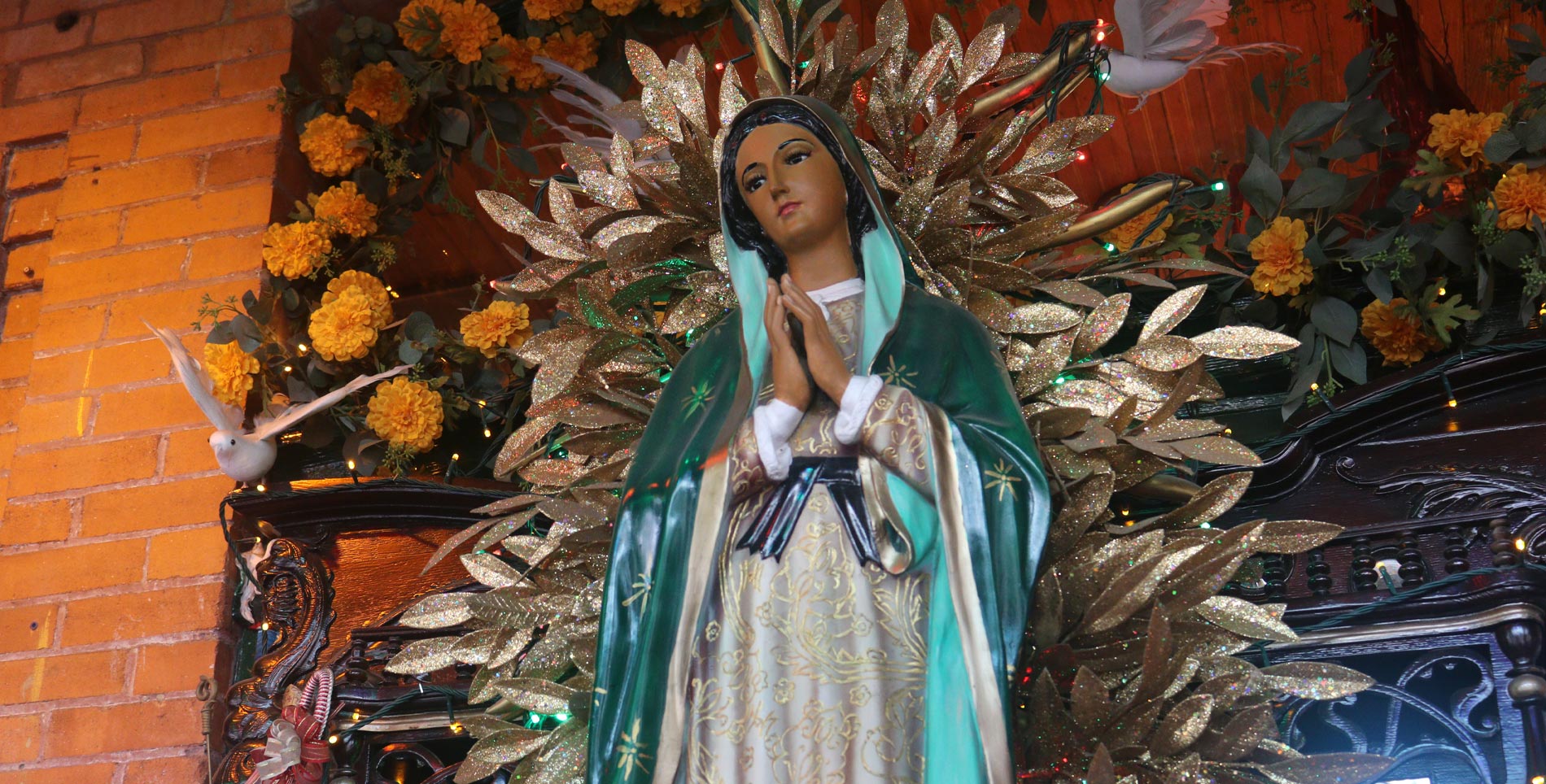

Our comments section is for members only.
Join today to gain exclusive access.